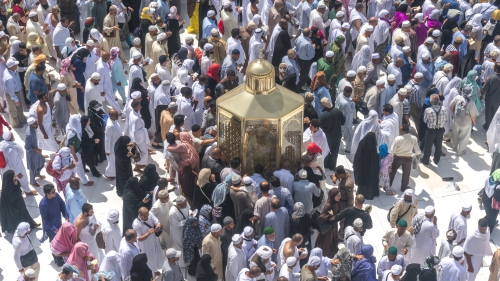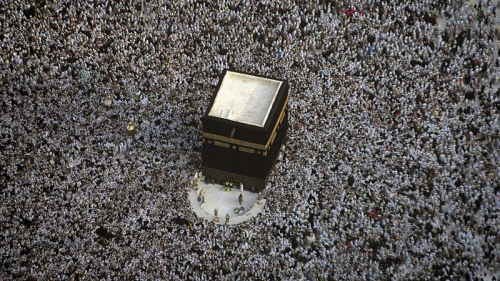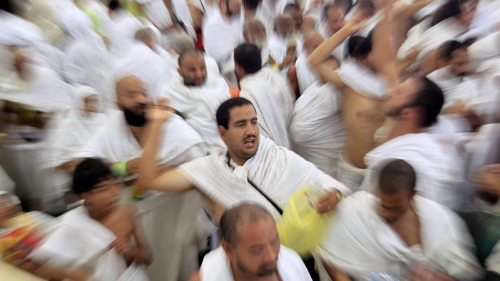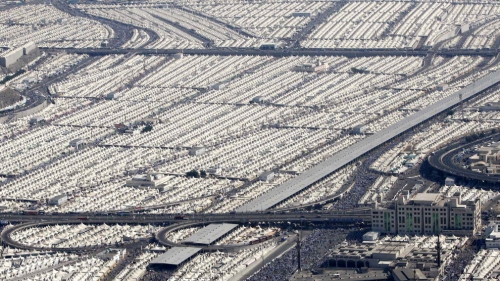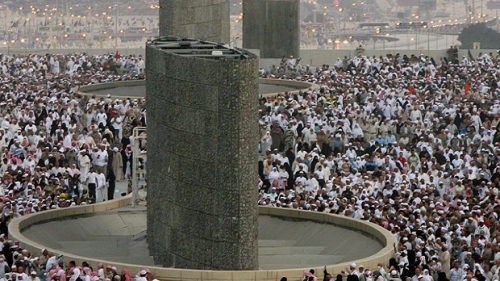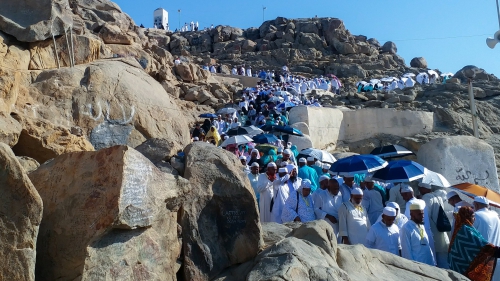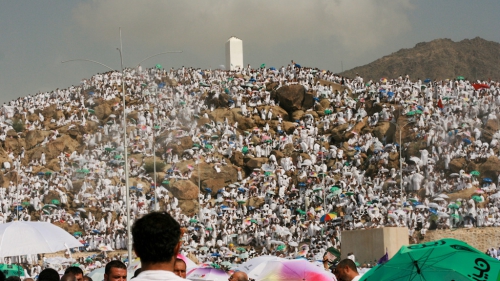Prophet Lut: Six Essential Lessons in Morality

Prophet Lut (Lot), a nephew of Prophet Ibrahim (Abraham), was sent to the people of Sodom and Gomorrah, in the vicinity of the Dead Sea. His people were homosexuals, generating all sorts of other unspeakable sins as well. As a result, they were punished and wiped off the face of the earth.
The extensive accounts of Lut and his people are presented in these Qur’anic surahs (chapters): al-A’raf (80-84), Hud (74-83), al-Hijr (58-77), al-Anbiya’ (74-75), al-Shu’ara’ (160-175), al-Naml (54-58), al-‘Ankabut (28-35), al-Saffat (133-138), al-Qamar (33-40), and al-Tahrim (10). The following are six lessons gleaned therefrom:
Homosexuality as an atrocious evil
Homosexuality is one of the most despicable crimes. Its character is such that it leads to a succession of other equally atrocious crimes. It violates the fitrah (human nature), treats with contempt religious commandments, works against the laws of nature, and establishes itself as an agent of falsehood and misguidance.
Homosexuality is the mother of all immorality. As a bane of existence, it must be confronted head-on. It is a form of existential perversion whose presence cannot be tolerated. Lut’s people were punished with a combination of punishments, so as to teach posterity a lesson. Allah took away their sight, rained down on them showers of stones, turned their houses upside down, and caused them to be swallowed up by the earth.
Consequently, Sodom and Gomorrah became synonymous with the shameful sin of homosexuality, and the annihilation of their people a proverbial manifestation of heavenly vengeance and justice.
The impact was so great that the word “sodom” became the origin of several English words, such as sodomy, sodomize and sodomite, all of which are related to having intercourse with the same gender as a crime against nature. With slight variations, the word entered the vocabularies of many world languages, becoming an international term.
Moreover, in the languages of most countries where Muslims are majority, the root of the word “lut (lwt)” is also used for constructing terms, often pejoratively, concerning homosexuality. Some of such languages are Arabic, Malay, Persian, Bosnian, Urdu, Pashto and Turkish.
Allah calls the people of Lut immoral, unjust, lewd, mischievous, transgressors, criminals, evil-doers, people without reason, destroyed in such a way that their roots were cut off, a people given to evil and committing abominations.
The Prophet cursed three times “the one who does the action of the people of Lut”, which is unprecedented.
Evil knows no bounds
When Satan rebelled against Allah, he vowed that he will stop at nothing in order to deceive and misguide man. Destroying humanity became the object of his existence. Some of the most applicable strategies of Satan are reinvention, ingenuity, guile and deceit. He aims to hit man where it hurts him most. Falsely decorating and making bad things fair-seeming to people is analogous to Satan’s operational forte.
Satan knows that man’s weakest points (Achilles’ heel) are mortality and thirst for power. These in turn trigger and intensify the processes of pleasure-seeking with the aim of getting the most out of the sole and short life opportunity. The purpose is to awaken the animal side of man and to make it rule over the rest of his being.
Satan promised that he will go so far in deluding and misguiding man that man, in the end, will yet resort to changing the creation of Allah. He will rebel against himself, his Creator and the order of nature. So confident was Satan about his plans that he said to Allah that “You will not find most of them grateful (to You)” (al-A’raf, 17).
Satan’s destruction of man does not manifest itself physically, but spiritually, morally and psychologically. The damage originating therefrom is more substantial, more vicious and more durable.
In addition, Allah as the Creator tests man as His creation with myriads of tests. In passing, this earthly life in its totality is nothing but a test. It is a short-lived affair nonetheless, whereas the Hereafter is the eternal abode.
As part of the procedure, Allah makes some people more inclined to certain sins than others. People vary in their tests and also capacities. The tests of Lut’s people, certainly, were unique, requiring a unique set of responses.
Hence, every person is obliged to study himself to see where his personal strengths and weaknesses lie. He should capitalize on the former and work continuously on protecting and remedying the latter.
There is nothing special for a person to discover that he was created slanting towards a sin as a test from his Creator, only then to surrender to it. Giving in to the impulses of lusts is not a sign of strength or victory. Rather, it is a sign of weakness and defeat.
Indeed, a sign of strength is to resist the advances of vice and immorality, regardless of their types and degrees, and to cultivate the spiritual and moral virtues instead. A sign of strength furthermore is to reject Satan and his wiles, and to willingly submit to Allah and His divine guidance. The victory is to turn to the right direction and the right source for inspiration and support.
The immorality of the people of Lut was the result of all those factors. They succumbed to the deceptions of Satan and the weaknesses of their own souls. They allowed themselves to be thus blinded and incapacitated, and to be hoodwinked into doing something which nobody ever did before them. They became at once the victims and protagonists in pushing the limits of evil to hitherto unknown levels.
That is why Prophet Lut constantly reminded them of that ungodly “honour”. He used to tell them: “Do you commit such immorality as no one has preceded you with from among the worlds?” (al-A’raf, 80).
Lut told his people that the reason for their wickedness was the fact that they neither feared nor obeyed Allah. His commandments meant nothing to them. They preferred to submit to and follow the phoney authority of Satan and their inflated selves. They were a plaything within Satan’s schemes. They permitted their carnal desires to rule over them and to preside over their decision-making.
Allah describes their state as follows: “Indeed they were, in their wild intoxication, wandering blindly” (al-Hijr, 72). How severe their condition was testifies the point that before these words, Allah swears by Prophet Muhammad’s life: “Verily by your life (O Muhammad)”. The two parts constitute one verse and so, one verdict.
Caliph al-Walid b. ‘Abd al-Malik is reported to have said: “If Allah did not inform us in the Qur’an about the crime of the people of Lut, we would never know that such a thing is possible.”
How was that possible?
The reason is that evil is rendered meaningless, hollow, vain and unreal when juxtaposed with the truth and righteousness. It stands no chance in any fair and square confrontation with the latter. Its falseness and futility are brief. What is done by night, appears by day.
Therefore, to have any bearing on life proceedings, evil must project itself as a moving target. It must continuously reinvent itself and its modi operandi. It must be extremely (and devilishly) creative in what it normally does, remaining “ever-fresh”, “ever-attractive” and “ever-relevant”. It needs much more than just survival and being around. It needs to be on the offensive.
The results of the relentless creativity and resourcefulness of evil are meant to keep the truth and its people busy, not allowing them to fully concentrate on the rendering and promotion of their case. The truth and its people are meant to be mired in dealing with the fluid, unpredictable and evolving nemesis. The aim of evil is not to promote itself, for it has nothing genuine to promote. Rather, its aim is to try to contain and stifle the potency of the truth as much as possible.
And since the confrontation between good and evil, and between the truth and falsehood, is a rule of life, evil and falsehood are set to go to great lengths to always reform and keep themselves up to date. They are set to know no bounds in doing so. There is no extremity, limit, aberration and anomaly in the vocabulary of evil. The only thing that is anomalous and undesired is the truth and its ways.
That said, today’s modernity – as a pinnacle of man’s and his society’s evolution away from God and Heaven – has provided some of the most advanced means and safest havens for evil, including homosexuality. The most notable aspects of modern civilization are used for the purpose, such as science, technology, art, education, media and entertainment.
The immoral culture of Lut’s people has found the biggest support, both academically and practically, within the orb of modernity. It is a mark of backwardness and cultural rudeness to question the trend. It may soon become a punishable offence to do so.
Things seem to be coming full circle. This is a time of either modern primitiveness or primitive modernity. At any rate, it is a time of modern jahiliyyah (ignorance) where the modern man has achieved such a level of immoral sophistication that virtually every abnormality has been turned into normality, and every normality into abnormality. In their wild cultural, intellectual and socio-political intoxications, people are big-headed and wandering blindly. This may yet be a sign of the nearness of the Day of Judgment some of whose portents relate to a widespread immorality and wickedness.
It goes without saying that in tackling homosexuality – and all the LGBT phenomena – the multidimensionality of the predicament ought to be acknowledged and faced as such. Homosexuals – just like other wrongdoers - are firstly victims, then perpetrators. They are sick and need help. They are wrong and need to be enlightened. They need to be attempted to be cured first, before considering punishment, should the first option fail. Even the people of Lut were destroyed only after the other alternatives had proven unsuccessful and the people continued unabated with their misdeeds.
Homosexuality is likewise an effect. It is a psychological and social construct. Hence, while remedying it, its causes are to be systematically tackled as well. Neither of them is to be left loose and unattended to. Deficiency and inconsistency in dealing with homosexuals would signify a grave act of injustice towards the majority of society which is forced to put up with the sin in their midst. The causes of the problem reside evenly in the realms of worldview, education, entertainment, mass media, popular culture and social norms. There is more to it than meets the eye.
The Qur’an affirms that evil stays evil and good stays good irrespective of how much support and impact they may enjoy in society. It is not people’s standards, but Allah’s, that apply: “Say: ‘Not equal are the evil and the good, although the abundance of evil might impress you’. So fear Allah, O you of understanding, that you may be successful” (al-Ma’idah, 100).
The Qur’an also states that in the story of Lut and his people there is a sign. However, that sign - and all Allah’s signs in general - could be comprehended and benefited from only by those who discern, believe and use reason (al-Hijr, 75-77; al-‘Ankabut, 35).
The way humanity behaves at the moment indicates that the modern and West-driven civilization is heading in the wrong direction. The end cannot be good. People do not possess what it takes to succeed and enjoy a civilizational happy ending. Faith, rationality and common sense are edging ever closer to extinction.
Institutionalization of evil
The evil of Lut’s people was more than a private, sporadic and inconsistent affair. It was institutionalized, in the sense that it was so widespread that it was regarded as normal. It then developed into an established social convention or norm. It became part of society’s mainstream. Homosexuality was nationalized, so to speak, and was a cultural manifestation.
It seems that exactly around that time the historical evolution of the institutionalization of falsehood and evil has come to be full-fledged. That could be one of the reasons why the Qur’an refers to king Namrud and his debate with Prophet Ibrahim (Lut’s uncle). King Namrud was the first ruler in history who claimed to be a living god. He was a personification of the phenomenon of the institutionalization of falsehood. However, what in this regard the Qur’an reveals concerning earlier prophets represent phases in the evolution.
For that reason did Lut censure his people for committing abominations and practicing their wickedness even in their councils and public gatherings (al-‘Ankabut, 29). He also criticised them for performing their immoral homosexual deeds so openly and publicly that they could see each other while doing so (al-Naml, 54).
So engrossed were they in their “tradition” that they resorted to highway robberies (al-‘Ankabut, 29). Part of that evil was also rape. They did not mind disseminating internationally the effects of their misconduct.
That homosexuality and other misdeeds were a national agenda attests this point as well. While most other prophets had to deal as much with their people as a whole, as with their socio-political and economic elites (al-mala’) in the role of public representatives, Prophet Lut, on the other hand, is constantly said to have dealt with his people en masse only. He had to confront them as a monolith body. There is no mention of elites.
That means when it comes to immorality in general, and homosexuality in particular, classes and ranks of people are irrelevant. Immorality is blind to social stratification. For immorality to take off and thrive, it desperately needs everybody’s contribution and role. It needs the whole society. It needs to be society.
The tyranny of the majority
The story of Prophet Lut likewise teaches us a lesson in the tyranny of the majority. That is a case of the majority pursuing its objectives and agendas at the expense of those of minority groups.
In such a milieu, chances for minority factions to voice their concerns and put forward their programs are extremely slim. They are destined either to suffer forever, or to keep compromising their ideals to bring them closer to those of the majority.
This is an in-built weakness of majority rule, which ought to be carefully attended to if it were to command any degree of respect and integrity. That is why proper constitutional democracies nowadays, whose essence is rule of the majority, require majority rule with minority rights. They are endorsed and controlled by constitutions which protect the rights of individuals and minority factions.
What happened to Lut and his few followers was the worst case of the tyranny of the majority. Although they were on the right path, they had to suffer. They enjoyed neither rights nor status in the community. Their only “crime” was that they were a minority and were different.
Hence, Lut’s people plotted to expel him, the believing members of his family and his small group of believers from their homes and the city altogether. They specified the reason for doing so to the effect that they were people who kept themselves pure and clean. Had they not been overtaken by Allah’s punishment beforehand, they would certainly have implemented their vile scheme.
Additionally, Lut was forbidden from bringing home and entertaining anyone (al-Hijr, 70). He was a victim, yet a prisoner, of circumstance.
In other words, Lut’s and his followers’ “crime”, apart from being an ideological minority, was also their rejection of homosexuality and the other forms of all-pervading evil; that is, their rejection of mainstream (corrupt) norms. This is evidence that under the tyranny of the majority – and in bad forms of democracy today – standards are often bargained. It is merely the will and interests of the majority and their might that are honourable and right. Only under such circumstances can being “pure”, “clean”, “sensible” and “honest” be regarded as a fault and an affront to others (the majority).
Allah says: “But the answer of his people was not except that they said: ‘Expel the family (and followers) of Lut from your city. Indeed, they are people who keep themselves pure’” (al-Naml, 56).
When the angels came to Lut in the form of handsome men, he knew that as such they would be harassed by his people. The Qur’an says: “He was grieved for them and felt himself powerless (to protect) them. He said: ‘This is a distressful day’” (Hud, 77).
Being fully cognizant of the situation and its potential repercussions, Lut also lamented: “If only I had against you some power or could take refuge in a strong support (to resist you)” (Hud, 80).
Even before the visit of the angels, Lut prayed: “My Lord, help me against the mischievous people” (al-‘Ankabut, 30).
Therefore, it is no wonder that the angels immediately after introducing themselves to Lut as the messengers of his Lord, consoled and assured him that his people will never reach, nor harm, him (Hud, 81).
They also told him: “Fear not, nor grieve. Indeed, we will save you and your family, except your wife; she is to be of those who remain behind. Indeed, we will bring down on the people of this city punishment from the sky because they have been defiantly disobedient” (al-‘Ankabut, 33-34).
Lut and the freedom of belief
While inviting his people to the path of Allah, Lut – just like every other prophet and preacher of truth – promoted the notion of freedom. The freedom of belief topped his priorities. He subscribed to the idea that there is no compulsion, nor manipulation, in religion.
Ideally speaking, Lut’s task was twofold: to convey and teach freely the divine message, and to create conducive environments where people will be able to freely either accept or reject the message. He knew that only in free environments the truth could prosper and falsehood could be exposed and defeated.
Lut often targeted his people’s thinking and conduct patterns as impediments to freedom – and guidance. The people thought they were free and fine. However, little did they know that they were slaves of their untamed folly and sin. They were as ignorant as arrogant and wrong.
Lut wanted to liberate and enlighten them through the monotheistic message of Islam (tawhid), and through their submission as well as servitude to Allah alone. He used to tell them that he was to them but a trustworthy messenger. “So keep your duty to Allah and obey me. And I do not ask you for it any payment. My payment is only from the Lord of the worlds” (al-Shu’ara’, 163-164).
That his wife, despite everything, did not believe substantiates Lut’s principles. The Qur’an uses that case as a symbol of freedom, which must be coupled with responsibility. People are what they believe and what they do according to their beliefs. Everything else is secondary.
Using the same case, the Qur’an furthermore shows that no matter what, people must pursue and exercise their freedom of belief and freedom of choice. When they and their choices become free, the influences of external factors become inconsequential. They get marginal at best, albeit never pivotal.
The Qur’an cites the example of the non-belief of the wife of Nuh and the wife of Lut, despite the fact that they “were under two of Our righteous servants but betrayed them, so those prophets did not avail them from Allah at all, and it was said: ‘Enter the Fire with those who enter’” (al-Tahrim, 10). Non-belief was their free choice, so they were fully responsible for their fates.
Within the same framework, the Qur’an gives the example of the belief of the wife of Pharaoh. Against all odds, she was a model believer. She prayed: “My Lord, build for me near You a house in Paradise and save me from Pharaoh and his deeds and save me from the wrongdoing people” (al-Tahrim, 11). She wanted to believe and to be guided, so she deservedly got what she wished for. No obstacle is too big for exercising the freedom of belief.
Finally, also as an example of perfect belief, the Qur’an mentions the case of Maryam, the daughter of ‘Imran, who stoically passed her extraordinary tests. She “guarded her chastity, so We blew into (her garment) through Our angel, and she believed in the words of her Lord and His scriptures and was of the devoutly obedient” (al-Tahrim, 12).
The prophets were like fathers for their nations
When the people of Lut came to his house, running and intending to harass his guests: angels in the form of beautiful and handsome men, he told them: “O my people, these are my daughters; they are purer for you. So fear Allah and do not disgrace me concerning my guests. Is there not among you a man of reason?” (Hud, 78).
They replied: “Certainly you know that we have no claim on your daughters, and most surely you know what we desire” (Hud, 79).
What is the meaning of the phrase “these are my daughters”?
The problem is compounded by the fact that in the Old Testament, the daughters are Lut’s (Lot’s) own biological daughters “that have not known man”. He offered them to a mob from his people to do to them “as is good in your eyes”, in lieu of disturbing and potentially raping his guests (Genesis, 19:8).
The message of the Qur’an, however, is that they were not Lut’s own biological daughters. They were society’s women. Lut reminded the people of them and their responsibilities towards them. He did so, calling women his daughters, because the prophets were like fathers for their nations, as per the views of all commentators of the Qur’an.
Indeed, what is suggested in the Old Testament is as immoral (kind of prostitution) as homosexuality itself. According to the Qur’an, Lut directed his people to a purer alternative, which is legal marriages. However, there is nothing pure, nor blameless, in the alternative presented by the Old Testament.
Lut was pure, living a pure life, so he wanted the same privilege for everybody. But purity was a crime and sanity unwelcome. Impurities and senselessness were sought-after.
As an additional interpretation of the meaning of “daughters”, Lut somewhere else denounced his people for abandoning their wives, “those whom Allah has created for you to be your mates. But you are a people transgressing and exceeding limits” (al-Shu’ara’, 166). Clearly, “daughters” are intended to mean “wives” (mates and generally women). This analogy is important because the first principle of tafsir (interpretation of the Qur’an) is to interpret the Qur’an by the Qur’an itself.
It is due to this that the wives of Prophet Muhammad (peace and blessings be upon him) - who also was like father to his ummah (community) – are called “mothers of believers” (ummahat al-mu’minin). Accordingly, some scholars consider that the whole Muslim community is the “family” of the Prophet.
The Qur’an proclaims: “The Prophet is closer to the believers than their selves, and his wives are (as) their mothers” (al-Ahzab, 6).
Topics: Fitra (Original Disposition), Freedom Of Religion, Homosexuality, Modernity, Morality, Prophet Ibrahim (Abraham), Prophet Lot (Lut), Satan (Iblis)
Views: 33251
Related Suggestions






